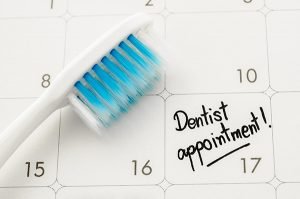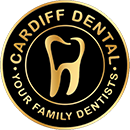Do Cold Sores Count Out Dental Appointments?
 Cold sores are a common condition. In fact, 25% of us suffer from recurring cold sores, and more than 50% of us carry the herpes virus responsible for them.
Cold sores are a common condition. In fact, 25% of us suffer from recurring cold sores, and more than 50% of us carry the herpes virus responsible for them.
Cold sores are characterised by small blisters on your lips and are often confused with canker sores, which present similar symptoms.
If you suffer from cold sores and you’re wondering if they will impact a scheduled dental appointment, we recommend you give us a call.
Generally, we recommend letting your cold sore heal before an appointment to decrease the chance it will spread to you or others.
Don’t worry; most cold sores take less than ten days to go away! At Cardiff Dental, we’re always happy to reschedule your appointment!
How to Beat a Cold Sores
Anyone who has suffered the inconvenience and embarrassment of cold sores knows the symptoms of a cold sore coming on a tingly, itchy, hot feeling on the edge of your lip.
And because cold sores can be caused by stress, they sometimes seem to strike when they’re least welcome, just before a party, job interview, or other important occasion.
The first cold sore is often the worst. But after that, the virus lurks in your system forever, lying dormant beneath your skin’s surface, waiting to spring back to life when circumstances are right.
At Cardiff Dental, we know that fighting back hard against cold sores when they first start to erupt is one of the best ways to stop them in their tracks, protecting your lips and mouth.
So, here’s what to do if you suffer from cold sores
Have medicine handy
Several prescription antiviral drugs help speed the healing process, particularly if they are used as soon as symptoms are felt:
- Penciclovir (Denavir)
- Valacyclovir (Valtrex)
- Famciclovir (Famvir)
- Acyclovir (Xerese, Zovirax)
Having your prescription already in hand can spare you a trip to the doctor and help you beat the virus back.
So, if you are a regular sufferer, visit your doctor before an outbreak.
Then, you can get down to the pharmacist and start fighting back against cold sores at the first symptoms immediately.
Don’t touch it!
Poking, rubbing, or peeling may give satisfaction at the moment, but it only extends the healing process and helps spread the virus.
If you accidentally touch a cold sore, wash your hands with an antibacterial as soon as possible.
Cold compresses
Applying a cool, wet towel to the cold sore thrice a day for 10 minutes can treat redness, pain, and swelling.
According to the Mayo Clinic, cold compresses can break down crusting and speed healing.
Stay away from citric acid.
While citric acid is good for you overall, it can aggravate a cold sore, leading to more pain.
During a cold sore breakout, replace citrus fruits with Vitamin C tablets, which help your body’s immune system battle cold sores.
Treat pain
The embarrassment and inconvenience of a cold sore are enough to deal with, not to mention the pain.
Take ibuprofen or acetaminophen (mind any warning on the label) to treat the discomfort and swelling caused by a cold sore.
Use OTC remedies
Petroleum jelly can soothe painful and red cold sores, providing a barrier between the virus and the rest of the body.
Smearing petroleum jelly over a cold sore can bring extra relief, particularly with other tropical products.
Cold sore pain can be lessened with over-the-counter (OTC) remedies.
Benzocaine, Docosanol, and benzyl alcohol are ingredients in topical medicines that relieve cold sore symptoms and reduce discomfort. If you have any questions about this, ask your pharmacist.
Aloe Vera is often recommended for sunburns, minor cuts, and similar skin issues.
Putting Aloe Vera on a cold sore a few times a day may decrease discomfort and help facilitate healing.
Avoid triggers
If you know that too much stress or exposure to too much direct sunlight causes you to break out in cold sores, avoid those situations whenever possible.
By avoiding triggers, you may be able to prevent cold sores, stop them before they take hold, or at least keep them from becoming worse.
Some common triggers are:
- An immune system deficiency
- Colds or the flu
- Dental work or other mouth trauma
- Fatigue
- Food allergies
- Menstruation
- Pregnancy
- Sunlight or other exposure to UV light
Oral Health in Cardiff
At Cardiff Dental, our goal is to make quality dental care affordable.
Contact us today at (02) 4954 6888. For more information, go to our contact us page.
We look forward to seeing you soon.
Visit us at 30 Veronica Street in Cardiff.
